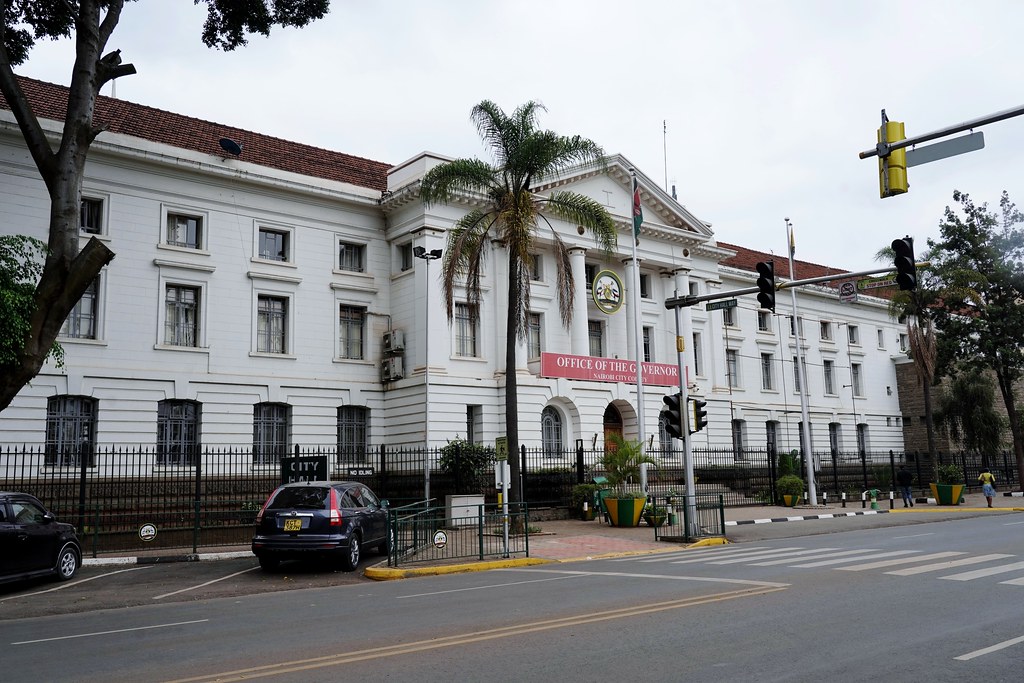Court declares Nairobi’s 2023 Finance law illegal, reinstates old charges

Justice Bahati Mwamuye found that the law lacked the necessary structure to justify the cost of services being charged to residents and businesses.
Nairobi County’s plan to generate more income has hit a dead end after the High Court struck out its Finance Act, 2023, for failing to meet legal requirements on pricing and public consultation.
Justice Bahati Mwamuye ruled that the county violated both the Constitution and the County Governments Act by introducing new fees and levies without first establishing a clear tariff and pricing policy.
More To Read
- Nairobi MCAs launch probe into Sh10.7 billion "fraudulent" legal claims
- Governor Johnson Sakaja distances self, Nairobi County government from goons seen backing police during protests
- Rent default crisis spiral in Nairobi as Sakaja faces backlash over eviction threats
- Garbage dumping row: Sakaja interdicts two county officials as probe begins
- Nairobi resident asks court to block Kenya Power from disconnecting vital county facilities
- Kenya Power: City Hall's actions were criminal, calculated to evade paying electricity arrears
He found that the law lacked the necessary structure to justify the cost of services being charged to residents and businesses.
“The petitioner’s uncontroverted evidence shows that Nairobi City County did not develop, adopt, publish, or implement any tariffs and pricing policy before enacting the impugned Finance Act, 2023. Public participation involved presenting schedules of proposed fees without underlying policy or cost analyses,” said the judge.
The case was brought by Nairobi resident Jared Ngisa Nyabuto, who said the county government had implemented illegal revenue measures affecting the public financially.
He sued the county assembly, its speaker, and the county executive. None of them responded to challenge his petition.
The court found that all new charges under the 2023 law were unlawful and ordered the county to revert to the levies and fees that existed under the previous Finance Act of 2022 or any earlier applicable law.
“Accordingly, the levies, rates, and fees imposed by law and in force immediately before the enactment of the Nairobi City County Finance Act, 2023, which has been quashed, being those under the Nairobi City County Finance Act of 2022 or earlier shall now continue to apply and shall continue to be paid by all affected persons pending the enactment of a new Finance Act,” Justice Mwamuye ruled.
The 2023 Finance Act had made sweeping changes, including raising the reserved parking fee from Sh1,000 to Sh1,500 per day, increasing the annual loading zone fee from Sh220,000 to Sh250,000, and pushing the display fee for vehicles on road reserves from Sh10,000 to Sh15,000 per square metre per year.
It also raised the cost of alcoholic drinks licenses, with general retail fees jumping from Sh25,000 to Sh100,000.
Small and medium-sized nightclubs were to pay more, while mega transport companies faced a Sh40,000 hike in their annual trade licence fees.
Taxi-hailing companies were affected as well, with the application fee for picking and dropping passengers increased from Sh1,000 to Sh5,000.
Saloon car parking in non-automated zones within the CBD also rose from Sh200 to Sh300, while pick-ups and vans were set to pay Sh500.
Justice Mwamuye concluded that the county failed to follow the legal process and must comply with all constitutional and statutory requirements before imposing any new charges in future.
Top Stories Today
Reader Comments
Trending













































